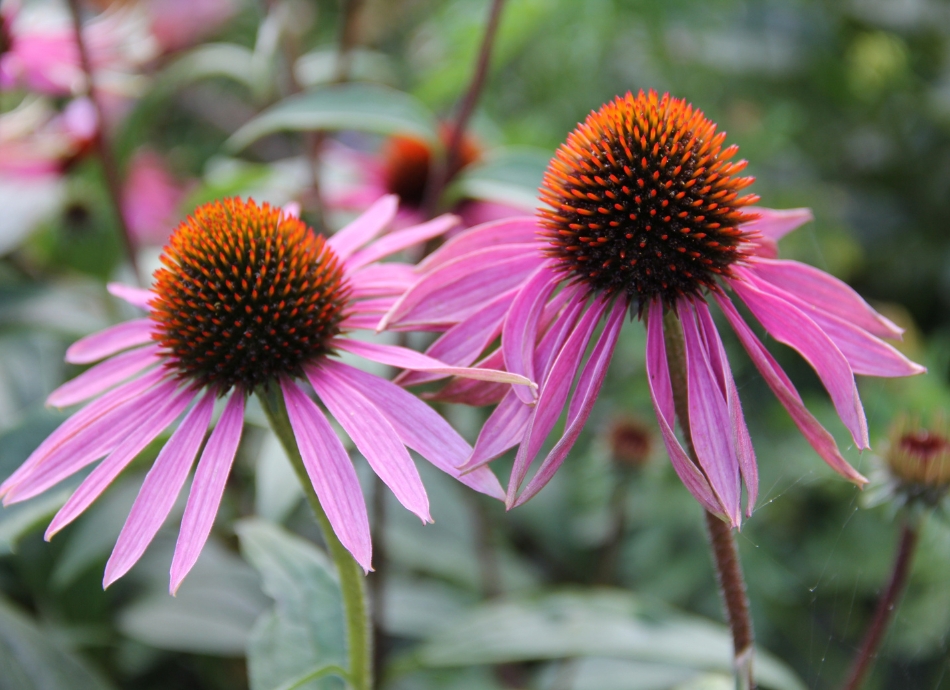You can now add Healthify as a preferred source on Google. Click here to see us when you search Google.
Echinacea
Key points about echinacea
- Echinacea is a natural plant product found in many natural health products used for common colds.
- The scientific evidence around the effectiveness of echinacea is mixed and not strong.
- Find out about it and possible side effects.

The echinacea plant is a species of herb.
- Echinacea has been promoted for preventing and treating colds and flu. It’s marketed for the relief of symptoms of cold and flu, such as sore throat and cough.
- It’s thought to stimulate the immune system.
- In Aotearoa New Zealand echinacea isn’t registered as a medicine but is considered a complementary and alternative medicine.
The scientific evidence around the use of echinacea is mixed and not strong which is why echinacea is not classed as a medicine.
- In 2014, a Cochrane systematic review of 24 studies was done. A total of 4631 people were involved in the studies and a range of echinacea preparations were tested. The review reported a weak preventative benefit for the common cold, no reduction in illness occurrence and no reduction in the duration of the common cold.
- The authors recommended that it's important to be aware that echinacea products can vary a lot.
- Most of these products haven’t been tested in clinical trials and the research doesn’t show whether it’s effective to shorten or prevent colds or how best to take it. This could be because different echinacea products:
- use different parts of the plant (leaf, flower or root)
- involve different ways of taking the active ingredient out of the plant, and
- add different other ingredients.
- It’s likely to be safe if you want to try an echinacea product for a short time. However, it’s more important to wash your hands, stay active but rest when you need to when you're unwell with a cold. Read more about colds.
Echinacea can cause side effects, although not everyone gets them.
- If you who have asthma or atopy (a tendency for allergic asthma, eye and skin allergies, food allergy, or hay fever) you may be more likely to have allergic reactions after taking echinacea by mouth or applying it to your skin.
- Echinacea may also cause an allergic reaction in sensitive patients. There have been reports of allergic symptoms such as skin hives, rash, itching, and redness.
- More severe symptoms such as tightening of the chest, difficulty breathing, and swelling of the face, mouth and lips have been reported.
- Echinacea may interact with some prescription medicines, so check with your healthcare provider.
Read more about medicines and side effects and reporting a reaction you think might be a side effect.
The following links provide further information on echinacea. Be aware that websites from other countries may contain information that differs from New Zealand recommendations.
Echinacea(external link) National Center for Complementary and Integrative Health
Echinacea(external link) Cancer Research UK
Brochures
Medicines and side effects(external link) Healthify He Puna Waiora, NZ, 2024
5 questions to ask about your medications(external link) Health Quality and Safety Commission, NZ, 2019 English(external link), te reo Māori(external link)
References
- Karsch-Völk M, Barrett B, Kiefer D. Echinacea for preventing and treating the common cold(external link) Cochrane Database Syst Rev. 2014 Feb 20;2:CD000530
- David S, Cunningham R. Echinacea for the prevention and treatment of upper respiratory tract infections – a systematic review and meta-analysis(external link) Complement Ther Med. 2019 Jun;44:18–26
Brochures

Medicines and side effects
Healthify He Puna Waiora, NZ, 2024

Health Quality and Safety Commission, NZ, 2019 English, te reo Māori
Credits: Healthify editorial team. Healthify is brought to you by Health Navigator Charitable Trust.
Reviewed by: Stephanie Yee, Pharmacist, Auckland.
Last reviewed:





